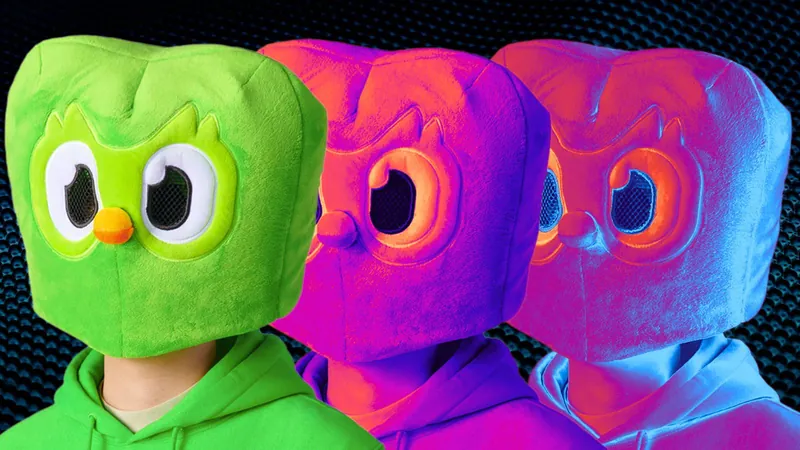
Duolingo's Bold Move: AI Takes Center Stage as Contractors Get the Axe
2025-04-29
Author: Siti
In a groundbreaking announcement, Duolingo, the beloved online language learning app, has officially declared its shift to an "AI-first" model. Echoing their successful embrace of mobile technology back in 2012, this strategy aims to revolutionize how the platform operates.
In a LinkedIn post on April 28, the company's CEO, Luis von Ahn, emphasized the urgency of this transition, stating, "AI is already changing how work gets done. It's not a question of if or when. When there's a shift this big, the worst thing you can do is wait." This proactive stance reveals Duolingo's commitment to staying ahead of the curve.
Von Ahn shared details from an internal all-hands email, highlighting that AI will enhance Duolingo's mission. He pointed out that the technology will enable faster content creation and the introduction of innovative learning features, such as video calls.
"Being AI-first means we need to rethink how we operate fundamentally. Minor adjustments won't suffice; we might have to start from scratch in some areas," he noted, acknowledging the challenges ahead. While the transition won’t happen overnight, Von Ahn believes in moving swiftly rather than delaying for perfection.
To facilitate this monumental shift, Duolingo plans to implement "constructive constraints," which means reducing reliance on contractors for tasks that AI can manage. The hiring process will also prioritize candidates with AI expertise, and team performance evaluations will consider AI usage.
Moreover, teams will only be allocated additional staff if they cannot automate certain functions, pushing for a fundamental change in operational dynamics.
Despite these changes, Von Ahn reassured employees that Duolingo remains committed to their well-being. "This isn’t about replacing our dedicated team with AI. It’s about removing bottlenecks so we can focus on creative work and meaningful problems, not monotonous tasks," he explained.
To support this transition, the company will enhance training, mentorship, and resources related to AI.
In a previous round of restructuring, Duolingo cut about 10% of its contractors last January to make way for generative AI initiatives, assuring that no full-time employees were laid off in the process.
Duolingo isn’t alone in this shift. Similar moves have been made by giants like Salesforce and Meta, who are also restructuring to incorporate AI into their business models.
As Duolingo sets out on this ambitious journey, users and industry observers alike are eager to see how this AI-first approach will shape the future of language learning.

 Brasil (PT)
Brasil (PT)
 Canada (EN)
Canada (EN)
 Chile (ES)
Chile (ES)
 Česko (CS)
Česko (CS)
 대한민국 (KO)
대한민국 (KO)
 España (ES)
España (ES)
 France (FR)
France (FR)
 Hong Kong (EN)
Hong Kong (EN)
 Italia (IT)
Italia (IT)
 日本 (JA)
日本 (JA)
 Magyarország (HU)
Magyarország (HU)
 Norge (NO)
Norge (NO)
 Polska (PL)
Polska (PL)
 Schweiz (DE)
Schweiz (DE)
 Singapore (EN)
Singapore (EN)
 Sverige (SV)
Sverige (SV)
 Suomi (FI)
Suomi (FI)
 Türkiye (TR)
Türkiye (TR)
 الإمارات العربية المتحدة (AR)
الإمارات العربية المتحدة (AR)